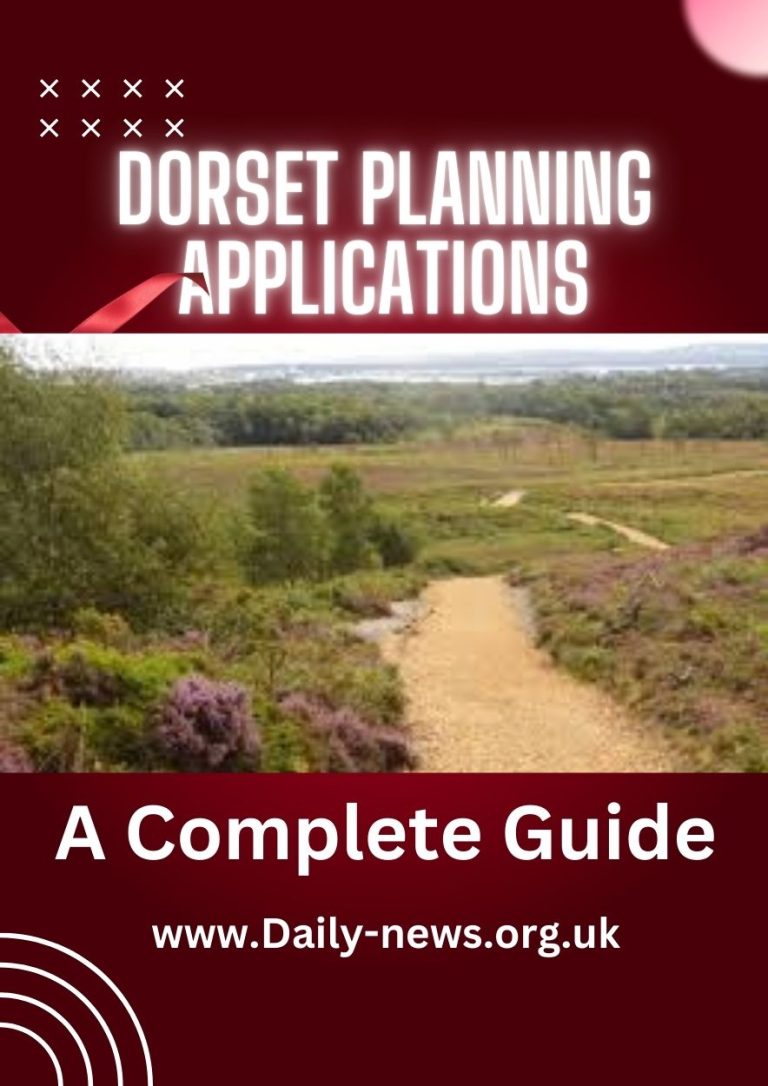Navigating the world of planning applications in Dorset can be a challenge, but it doesn’t have to be. Whether you’re a homeowner, developer, or simply interested in local development, understanding the planning process is vital.
In this guide, we will break down the key aspects of Dorset planning applications clearly and concisely, ensuring you get all the information for the journey ahead.
What is a Planning Application?
A planning application is a formal request to a local authority for permission to carry out development.
This could range from building a new home, extending an existing property, or changing the use of a building.
In Dorset, the local authorities responsible for planning applications include Dorset Council and Bournemouth, Christchurch, and Poole Council.
Types of Planning Applications
There are several types of planning applications you might encounter:
- Full Planning Permission: Required for most types of development, including new buildings, extensions, and changes of use.
- Outline Planning Permission: Seeks to establish whether the scale and nature of a proposed development would be acceptable before detailed plans are made.
- Reserved Matters: Follows outline permission and deals with the outstanding details of the proposal.
- Householder Planning Permission: Specifically for extensions and alterations to existing residential properties.
- Prior Approval: Applies to certain types of minor changes and developments that may not need a full planning application.
The Planning Application Process
Pre-Application Advice
Before submitting a planning application, it’s advisable to seek pre-application advice from the local authority.
This service helps you understand what information is required and can highlight potential issues early in the process. While there may be a fee for this service, it can save time and money in the long run.
Submitting the Dorset Planning Applications
Applications can be submitted online via the Planning Portal or directly to the local authority. You’ll need to include detailed plans, supporting documents, and the relevant fee.
Commonly required documents include site plans, design and access statements, and environmental impact assessments.
Validation and Consultation
Once submitted, the local authority will validate your application to ensure all necessary information is included.
Following validation, a consultation period begins, during which neighbors, statutory consultees, and other interested parties can comment on the proposal. This stage typically lasts 21 days.
Decision Making
The local authority aims to decide within eight weeks for most applications. Complex or larger developments might take up to 13 weeks.
Decisions are based on local planning policies, national guidelines, and the feedback received during the consultation period.
Approval or Refusal
If approved, planning permission will usually come with conditions that must be met. If refused, the decision notice will outline the reasons, and you have the right to appeal within six months of the decision.
Key Considerations for Dorset Planning Applications
Local Plans and Policies
Dorset’s planning decisions are guided by local plans and policies, which outline the development framework for the area.
These documents include the Bournemouth, Christchurch, and Poole Local Plan and the Dorset Council Local Plan. Familiarizing yourself with these plans can provide valuable insight into the types of developments that are likely to be supported.
Conservation Areas and Listed Buildings
Dorset is home to many conservation areas and listed buildings. If your proposed development affects these, you’ll need to take extra steps to ensure your plans comply with conservation regulations.
This might involve obtaining additional permissions or providing more detailed plans and heritage statements.
Environmental Considerations
Environmental impact is a crucial factor in the planning process. Dorset’s diverse landscapes mean that developments must consider issues such as flooding, biodiversity, and protected habitats.
An environmental impact assessment for larger developments to address these concerns is necessary.
Tips for a Successful Planning Application
- Engage Early: Seek pre-application advice and engage with the local community to gather support and address concerns early on.
- Provide Details: Provide comprehensive and accurate information in your application to avoid delays during the validation process.
- Understand Local Policies: Align your proposal with local plans and policies to increase the likelihood of approval.
- Consult Experts: Consider hiring planning consultants, architects, or other professionals to help prepare your application and navigate complex issues.
Submitting a planning application in Dorset can be a straightforward process if you understand the steps involved and prepare thoroughly.
From seeking pre-application advice to understanding local plans and policies, each stage is crucial to ensuring your proposal is well-received.
By following the guidelines in this guide, you’ll be able to navigate the planning application process with confidence.


